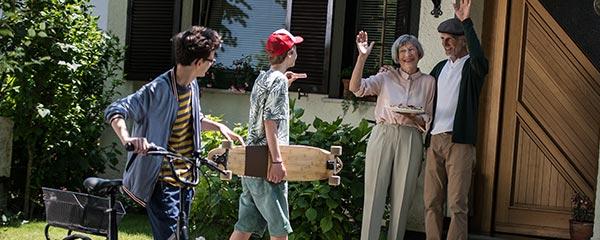As young people transition to adulthood, it’s important for them to feel cared for and have access to help when they need it. A new report, , from a Meta and ║┌┴¤═° study, shows most 15- to 24-year-olds surveyed in seven diverse countries -- Brazil, Egypt, France, India, Indonesia, Mexico and the U.S. -- feel they are getting this support, but not to the same degree.
At least eight in 10 young people in Indonesia (91%), Egypt (88%), the United States (84%) and Mexico (82%) say they generally feel “very” or “fairly” supported, which was defined for them as feeling cared for by people. Smaller majorities in France (75%), India (75%) and Brazil (66%) feel this level of support.
However, the study also found that sizable percentages of young people in each country feel “a little” or “not at all” supported -- ranging from a low of 8% in Indonesia to a high of 34% in Brazil.
The new Meta-║┌┴¤═° report provides an in-depth look at how socially supported young people in seven countries from different parts of the world feel. A larger report based on 142 countries will be released in November this year.
Young People Who Need Help Are Most Likely to Turn to Nearby Family or Friends for Support
The study also asked these young people whom they reached out to when in need of support in the past month -- from nearby friends or family members to people from work or school to neighbors or those who live near them.
Across all countries, at least six in 10 people who needed support turned to nearby friends or family members, but young people in Egypt (95%) and Indonesia (90%) were the most likely to do so. Young people who needed support were also generally more likely than older adults to seek that support from people at work or school and less likely to reach out to neighbors.
Which Mode of Communication Do Young People Use for Support?
When they needed help, young people tended most often to interact with people in person to get support or help. Across the seven countries, this percentage ranged from 43% in Mexico to 93% in Egypt. People aged 24 and older also most often interacted with people in person to get support or help, ranging from 34% in Mexico to 93% in Egypt.
Young people in most of the countries surveyed were also more likely than older people to use various forms of technology to seek support when they need it. While Indonesia shows the largest difference (25 percentage points) between young and older people who say they are likely to use technology for support, that gap is not significant in the U.S. and France.
Young people were not noticeably less likely than older adults to use any one technology type to reach out for support, except in the U.S., where they were only half as likely as older people to reach out via email (16% vs. 32%, respectively). India and Mexico are the only countries among the seven where both young people and older adults reached out to get support by phone as much or more than in person.
In most countries in general, both young and older people who had used technology in the past 30 days to seek support were more likely to have reached out for help in person as well.
Bottom Line
The findings in this report show that many young people in all seven countries studied feel supported by others. Though they still most frequently turn to nearby friends or family members and in-person interactions, many also often use technology to seek support.
Building on the rich data from this seven-country study, ║┌┴¤═° and Meta have conducted further global research on social connections through the ║┌┴¤═° World Poll. The Global State of Social Connections report will be published in November 2023, and can help provide governments, nongovernmental organizations and private companies with important insights toward customizing interventions, giving people access to the supportive social connections they need to thrive.
.
To stay up to date with the latest ║┌┴¤═° ║┌┴¤═° insights and updates, .
Explore the full State of Youth Social Connections Report in the .




